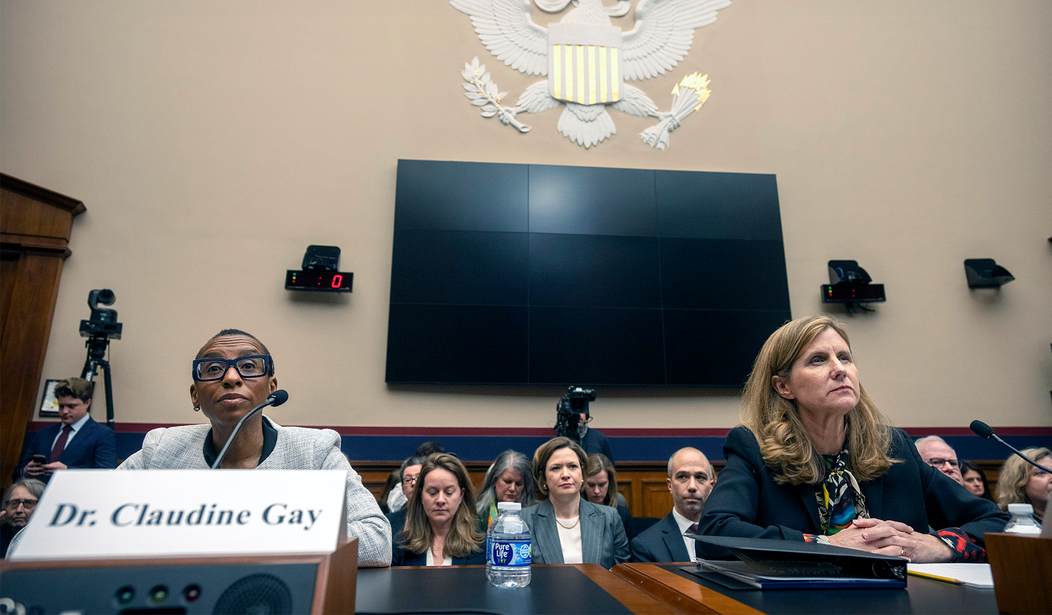Ryan Burge is a data analyst who synthesizes information about religion and politics in the United States. He publishes his findings and observations regularly on Substack. Last week, he wrote an article titled "How Weird is The Religious Composition of Harvard's Student Body?" In it, he examines the results of a poll Harvard conducted of this year's freshman class.
According to the poll, nearly half -- more than 46% -- of Harvard's freshman class identifies as "atheist" or "agnostic." (An even higher number -- nearly 65% -- describe themselves as "progressive" or "very progressive.") Burge explains how much of an "outlier" Harvard's student body is compared to the general U.S. population, in which only 12% self-identify as either atheist or agnostic.
But Burge also points out how different Harvard's student body is from other college students. He references a survey of 55,000 college students at more than 250 universities conducted by the Foundation for Individual Rights and Expression. According to the FIRE survey, only 21% of this year's freshmen consider themselves atheist or agnostic; Harvard's number is more than twice that.
Even more striking to Burge was how few Harvard freshmen are Protestant Christians. A 2022 Pew Research poll showed 43% of all Americans consider themselves Protestants. The FIRE survey of college students shows that a full 30% identify as Protestants.
At Harvard -- once perhaps the premier university founded by Protestants, whose first motto was "For the Glory of Christ" -- only 6% of this year's freshmen describe themselves as Protestants.
In doing some of my own research, I came across the results of a 2015 Pew Religious Landscape Study on atheism in America. Pew's data offers some insight into the composition of Harvard's first-year students; fully 40% of Americans between the ages of 18 and 29 say they are atheists. (Note that this Pew study did not ask about "agnostics.") The numbers drop dramatically in older groups of Americans: among 50-64-year-olds, only 14% are atheists, and only 9% of 65-plus Americans are.
Recommended
The Pew study provides plenty of food for thought with other data points. More than twice as many atheists are men, for example, and nearly 80% of all atheists are white. (The numbers are quite low among minorities and first- and second-generation immigrants.)
But what really struck me was a question Pew asked about "belief in absolute standards of right and wrong." Those polled could choose from two options: the first was, "There are clear standards for what is right and wrong." The second was, "Right or wrong depends on the situation."
A total of 83% of American atheists chose the second option.
I thought immediately of the testimony given by the presidents of the University of Pennsylvania, the Massachusetts Institute of Technology, and Harvard last week at a congressional hearing investigating antisemitism on American college campuses. When asked by Rep. Elise Stefanik (R-N.Y.) whether "calling for the genocide of Jews" was "bullying or harassment" under university policies, Penn's President Elizabeth McGill refused to answer affirmatively, calling it "a context-dependent decision." Sally Kornbluth of M.I.T. and Harvard President Claudine Gay were equally noncommittal, insisting that chanting for the deaths of Jews might or might not violate their school's codes of conduct "depending upon the context."
When confronted with what should have been the simplest of moral and ethical questions -- whether calling for the genocide of an entire class of people was at the very least a violation of university policies against bullying and harassment -- none of these academic leaders of esteemed institutions of higher education could bring themselves to give an unqualified "yes."
I have no idea what these women's religious beliefs are or are not. But I find their testimony notable, in light of the Harvard poll, the Pew data and the shocking behavior the country has observed on college campuses since the Oct. 7 slaughter of 1,200-plus Israeli Jews by Hamas terrorists.
The reluctance to admit to objective standards of right and wrong -- even in the face of truly egregious behavior -- smacks of arrogance and pride. "It depends upon the context" sounds like "It isn't wrong unless we say it is."
The Bible warns against this. In the Old Testament, the prophet Isaiah writes, "Woe to them who are wise in their own eyes." (Isaiah 5:21) The book of Proverbs says, "Do not be wise in your own eyes; fear the Lord and shun evil." (Proverbs 3:7) And in the New Testament letter of the apostle Paul to the Romans, he warns that when we exalt ourselves over the laws of God, we lapse into error: "[T]hey glorified him not as God, neither were thankful; but became vain in their imaginations, and their foolish heart was darkened. Professing themselves to be wise, they became fools and changed the glory of the incorruptible God into an image of corruptible man." (Romans 1:18-23)
The expression "pride goeth before destruction, and a haughty spirit before a fall" -- also from the book of Proverbs -- is a lesson here. The outrage after last week's congressional hearing has been so great that McGill resigned her position at the University of Pennsylvania. There are public calls for the resignation of Kornbluth and Gay, as well. Although Harvard's governing board has issued a public statement unconditionally and unanimously supporting Gay, she is now under scrutiny for plagiarism in her academic research.
Even if Gay or other individuals remain in their positions, the institutions themselves will suffer the consequences. Harvard and other higher education institutions are (within legal limits, of course) free to foster the culture they want. But Americans have no obligation to support that culture -- at Harvard or elsewhere -- either by financial donations, sending their children there, or hiring their graduates.

























Join the conversation as a VIP Member